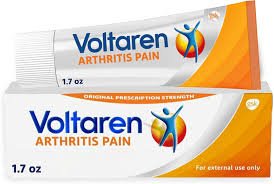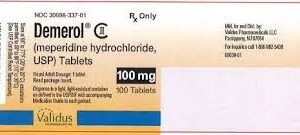Description
Tylenol PM: Overview, Uses, and Safety Information
Introduction
Tylenol PM is an over-the-counter (OTC) medication use to treat pain and aid sleep. It combines two active ingredients: acetaminophen, a pain reliever, and diphenhydramine, an antihistamine with sedative properties. This combination makes Tylenol PM effective for individuals who are experiencing mild to moderate pain along with difficulty sleeping. It’s commonly use for conditions like headaches, muscle aches, or back pain that are also disrupting sleep.
Active Ingredients
- Acetaminophen: The main ingredient in Tylenol PM, acetaminophen is a widely use analgesic (pain reliever) and antipyretic (fever reducer). It works by inhibiting the production of certain chemicals in the brain (prostaglandins) that cause pain and inflammation, although it does not have significant anti-inflammatory effects like other pain relievers (e.g., ibuprofen).
- Diphenhydramine: Diphenhydramine is an antihistamine, most commonly used to treat allergy symptoms. However, when taken in higher doses, it has a sedative effect, making it helpful for treating insomnia. It works by blocking histamine receptors in the brain, leading to drowsiness.
Common side effects:
- Drowsiness or sedation
- Dry mouth
- Dizziness
- Constipation
- Blurred vision
Serious side effects:
- Liver damage: Overuse or overdose of acetaminophen can lead to liver toxicity. It is important not to exceed the recommended dose, and caution is advised when taking other products containing acetaminophen.
- Allergic reactions: Though rare, an allergic reaction to diphenhydramine can occur, leading to symptoms like rash, swelling, or difficulty breathing.
- Confusion or memory issues: In older adults, diphenhydramine can cause confusion, memory problems, or difficulty thinking clearly.
- Urinary retention: Diphenhydramine can cause difficulty urinating, especially in older adults or those with prostate issues.
Drug Interactions
Tylenol PM can interact with other medications, including:
- Other sedatives: Combining Tylenol PM with other sedatives (e.g., benzodiazepines, alcohol, or other sleep aids) can increase the risk of excessive drowsiness, dizziness, and respiratory depression.
- Anticholinergic drugs: Because diphenhydramine is an antihistamine with anticholinergic properties, taking it with other medications that also have these properties (e.g., certain antidepressants or antihistamines) may increase the risk of dry mouth, urinary retention, and confusion.
Overdose and Emergency
An overdose of Tylenol PM can result in serious health complications, especially from the acetaminophen component, which can cause severe liver damage. Symptoms of overdose include:
- Nausea, vomiting, and loss of appetite (early signs)
- Yellowing of the skin or eyes (jaundice)
- Confusion, fatigue, and swelling (later signs)
If an overdose is suspected, it is crucial to seek immediate medical attention. For acetaminophen overdoses, N-acetylcysteine can be administered as an antidote if given within a few hours of the overdose.
Conclusion
Tylenol PM is a widely used over-the-counter medication designed to relieve pain while helping people with sleep difficulties. It combines acetaminophen, a pain reliever, with diphenhydramine, an antihistamine that promotes sleep. While it can be an effective solution for short-term pain and sleep disturbances, it is important to use Tylenol PM according to the recommended dosage to avoid the risk of liver damage or other serious side effects. As with any medication, patients should consult a healthcare provider if they have underlying health conditions, are pregnant or breastfeeding, or are taking other medications.






Reviews
There are no reviews yet.